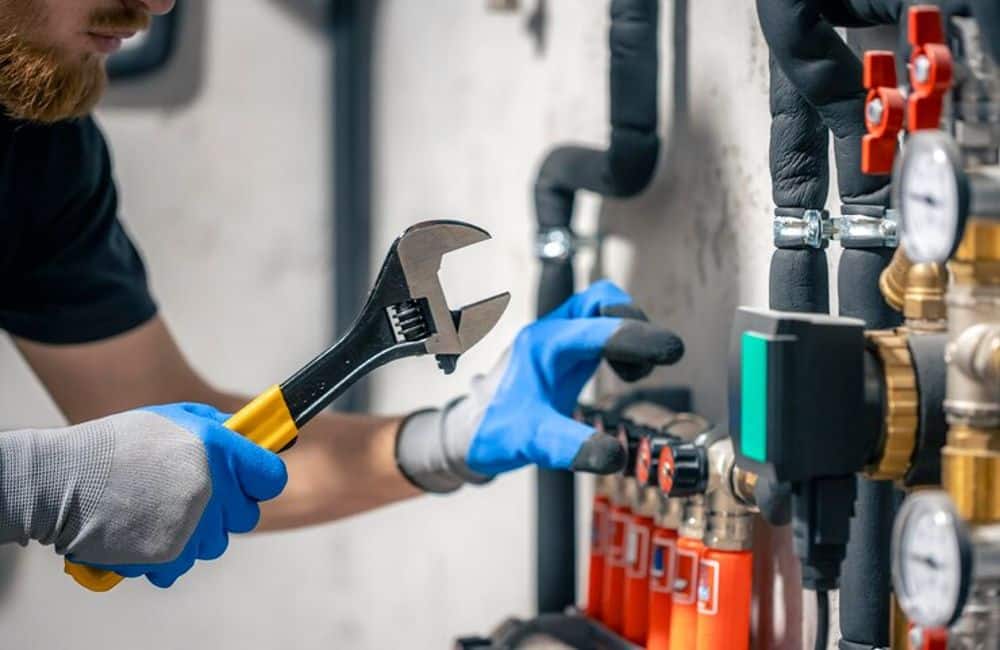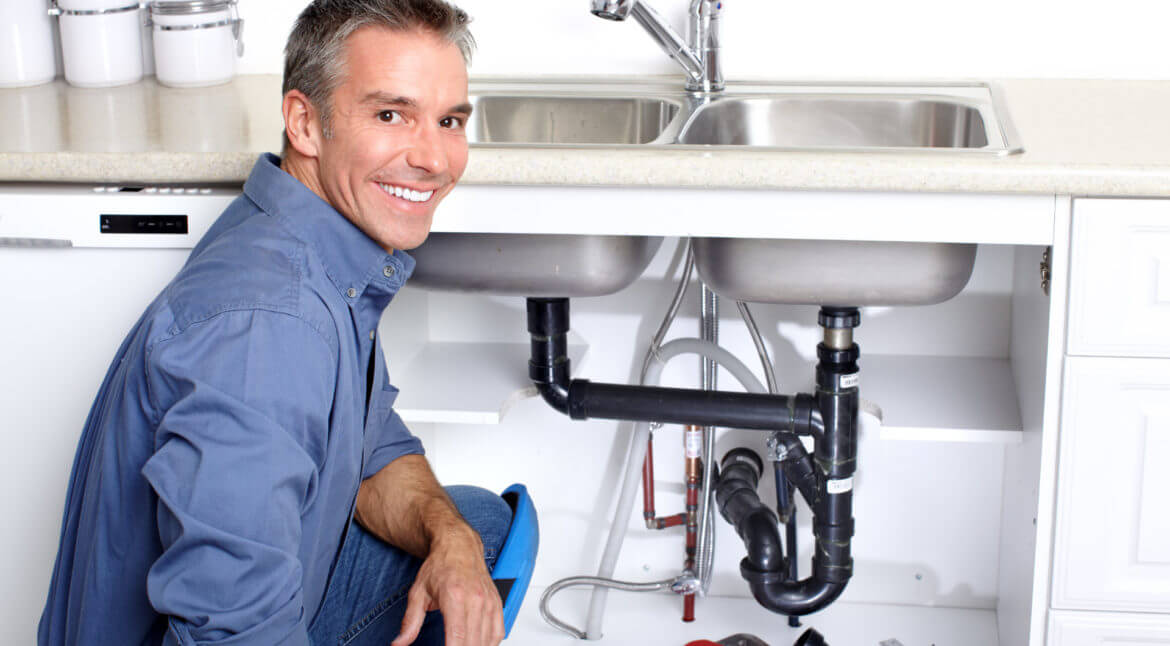Crucial Emergency Plumbing Tips to Apply Until Help Arrives
Crucial Emergency Plumbing Tips to Apply Until Help Arrives
Blog Article
Each person will have their unique perception when it comes to Plumbing Emergencies: Tips on What To Do Before.

Plumbing emergency situations can strike any time, creating stress and anxiety and potential damage to your home. Whether it's a burst pipe, a blocked drain, or a leaking tap, understanding just how to take care of the scenario till a specialist plumber arrives can save you from further complications. This article offers important emergency plumbing suggestions to help you reduce damage and regain control during a plumbing crisis.
Turn Off the Water Supply
The first step in any kind of pipes emergency situation is to shut down the water system. For local problems, such as a leaking faucet or toilet, turn off the shutoff near the component. When it comes to a major leak or burst pipeline, situate your home's major water shut-off valve and turn it off instantly. Knowing the location of these shutoffs ahead of time can conserve important time during an emergency situation.
Shut down Your Hot Water Heater
In specific emergencies, such as a ruptured pipeline, it's a good idea to shut off your water heater. This protects against getting too hot or damage to the unit when water quits streaming. Turn off the power supply to the water heater (electrical or gas) and let it cool down to stay clear of prospective risks.
Temporarily Quit a Burst Pipe
A ruptured pipe can lead to substantial water damages in minutes. To minimize the problem:
Call a professional plumbing professional instantly to resolve the problem completely.
Have an Emergency Plumbing Package
Prepare a basic pipes emergency package to manage small problems properly. Your set needs to include:
Having these tools handy can make a significant distinction in your capability to take care of emergencies.
Unclog Drains Pipes Safely.
A clogged up drain can be a discouraging and unpleasant issue. Below's how to tackle it:.
If these techniques do not work, avoid utilizing too much pressure, as it may intensify the obstruction.
Manage Overflowing Toilets.
An overflowing toilet can trigger instant disorder. Here's what you should do:.
Address Little Leaks with Momentary Repairs.
Little leakages can swiftly become significant issues if left unattended. Utilize these short-term repairs up until expert assistance shows up:.
While these solutions aren't long-term, they can assist reduce water loss and damage.
Handle Frozen Pipes Meticulously.
In chillier climates, frozen pipelines are an usual emergency situation. If you presume a frozen pipe:.
Know When to Call an Expert.
While quick fixes can help momentarily, specific plumbing concerns call for instant professional focus. Call a plumbing technician if:.
Promptly speaking to an expert ensures the problem is resolved properly and prevents additional complications.
Stop Further Damages.
Taking quick activity to minimize damages can save you money and time in the long run. Here's just how:.
Final thought.
Pipes emergencies can be overwhelming, yet with the best understanding and devices, you can manage the circumstance effectively up until aid arrives. By shutting off the water, resolving small leaks, and utilizing short-lived fixes, you can lessen damages and keep your home safe. Remember, these ideas are momentary remedies; always speak with an accredited plumber to deal with the source of the issue. Prep work and fast thinking are your best allies in any type of pipes emergency situation.
8 Helpful Tips for Managing Plumbing Emergencies at Home
If your plumbing system hasn’t failed once, wait for it because almost everyone has a story to tell. Sometimes, it could be simple emergencies such as a leaking pipe, a blocked cistern, or even a big burst pipe. In situations like this, you need to have some handy tips to save you some money and from possible damages.
Take care of minor issues early.
Sometimes, you could have avoided an emergency by taking proactive measures while it was still early. Some major plumbing emergencies can be a result of an ignored minor issue. We recommend that you have items like plumbing tapes and other related items. A plumbing tape can allow you to manage minor leaks before the plumber arrives.
Cut off the water supply.
This tip is essential in almost any type of leakage problem. For problems like minor leakages in the toilet or kitchen, turn off the supply that takes water to the affected pipes. If the leakage is a major pipe, you must shut off the supply valve to the entire building. This will help you avoid flooding your home and neighbors if you share a flat.
Know your plumbing system
Folks typically move into a new apartment without understanding the water supply around the building. This can prove disastrous if a water emergency arises and the plumber is far away. The previous tip will prove useless if you don’t practice this one. More importantly, know where your water shut-off valve is located – you’ll need that knowledge to prevent potential home floods.
Have some common handy tools
There are lots of plumbing emergencies that you can handle without hiring a plumber. That’s why you must keep some tools available always. Some tools that you can use to fix simple plumbing emergencies easily include plumbing tapes, screwdrivers, thread seal tapes, plungers, pliers, tape measures, and rubber gloves.
Insulate your pipes from cold
You’ll save yourself from many plumbing expenses if you protect your water pipes from the cold. This is because of the harmful effects that cold weather can have on your pipes. During winter, your pipes can burst from being overly expected to freezing temperatures. So, make sure insulators are there to keep the pipes working correctly.
Avoid practices that will clog your toilet.
Many people indulge in practices that can damage the plumbing system of the entire building. One of these is when they use their toilet to dispose-off garbage. They flush all kinds of things, such as paper towels, bandages, hairs, female sanitary products, etc., down the toilet. This will block your toilet in the long run, incurring unnecessary expenditures. Dump such waste in the trash instead.
Check your dials regularly.
Sometimes, there could be leakages in your home without noticing them in time. So, constantly monitor your water meter dial. If the dial is reading when there is nobody using water, this is an indicator that there is leaking. Check for leaks immediately. Call a plumber as soon as possible if you can’t find any.
https://www.constructionplacements.com/8-helpful-tips-for-managing-plumbing-emergencies-at-home/

I discovered that article on What to Do While Waiting for an Emergency Plumber when doing a lookup on the web. So long as you liked our post if you please make sure you remember to share it. Many thanks for going through it.
Call Report this page